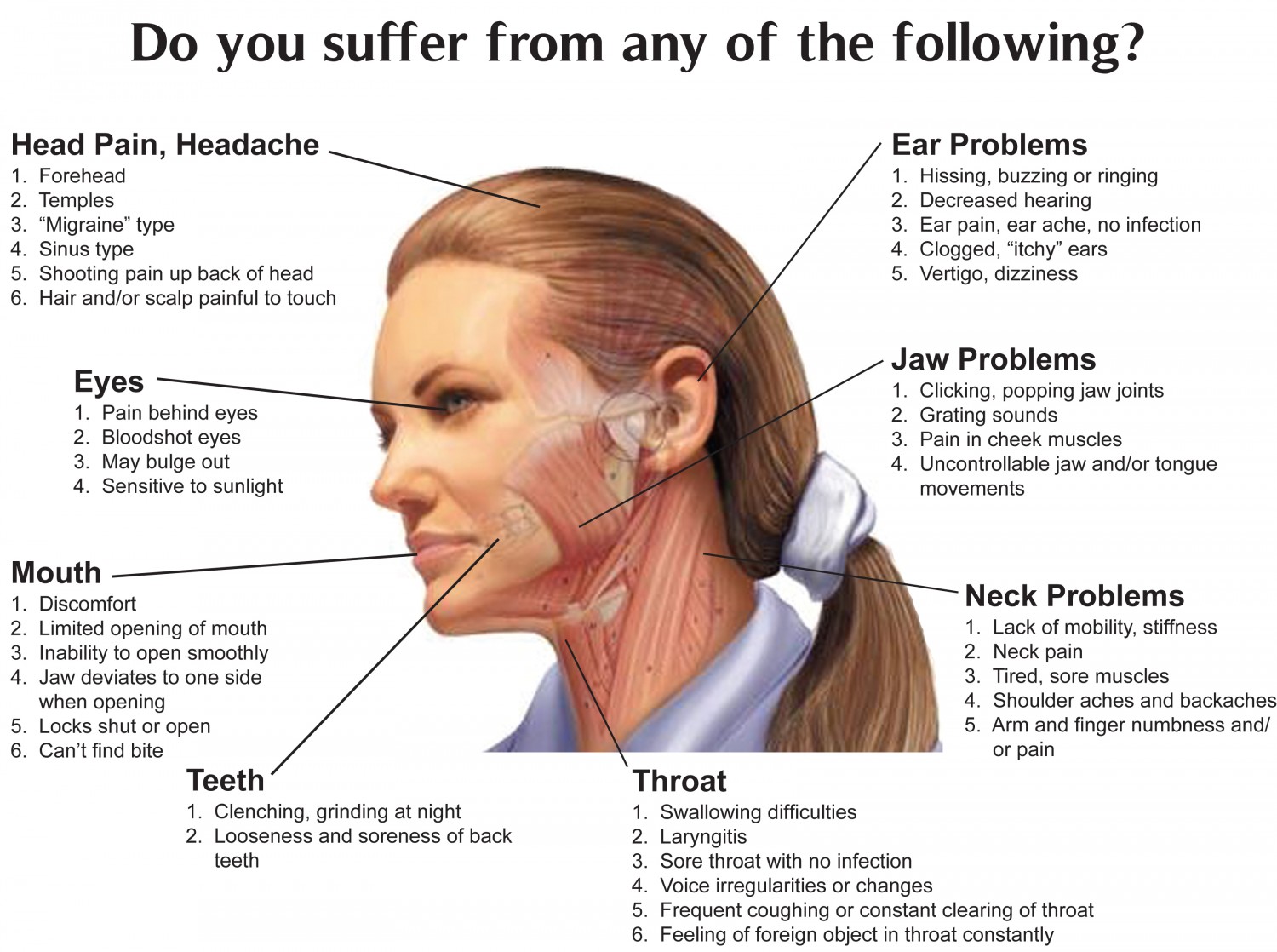The Royersford Dentist Offers TMJ, TMD, and Jaw Pain Services In Spring-Ford, Limerick, Phoenixville, Trappe, Pottstown, Collegeville and More.

The Royersford Dentist Can Help With Your TMJ TMD And Jaw Pain.
Tempro-Mandibular Joint Dysfunction Syndrome (TMD – often called TMJ) is a common condition affecting a wide variety of people. TMD is characterized by severe headaches, jaw pain of varying degrees, grinding teeth, and an intermittent ringing in the ears. The vast majority of TMD sufferers are unaware that the root cause of these problems is something that a dentist can effectively treat.
The symptoms of TMD are debilitating and can greatly interfere with everyday life. The comfort and general well being of the patient is at the heart of the dental practice, so pain relief is the first consideration of the dentist. The dentist is able to test, diagnose, and devise an immediate plan to treat the underlying causes of the TMD disorder.
Reasons For Treating TMD

TMD sufferers report that their symptoms generally worsen during periods of prolonged or unexpected stress, and that intense outbreaks of the condition can lead to neck pain and dizziness.
The most common cause of TMD is the misalignment of the teeth, often called “bad bite.” It is possible for the dentist to realign or adjust the teeth without the need for painful or expensive surgeries. The realignment/adjustment will stop the pounding headaches, the jaw pain, and the dizziness.
The grinding teeth symptom is particularly common and usually occurs at night. The grinding will eventually erode the structure of the teeth and lead to much more severe dental problems in the future. Untreated TMD is one of the prime underlying factors in eroded jawbones and loose teeth.
It is important for anyone experiencing the symptoms of TMD to visit the dentist for an exact diagnosis.
What Does Treating TMD Involve?
TMD could be a result of several different problems. Bad bite is the most common, but an injury resulting from a blow to the meniscus cartilage is also a possibility. Initially, the dentist will thoroughly examine the jaw area, the patients bite, take x-rays, and review the patient’s history in order to make an accurate diagnosis and recommend necessary treatment.
Once a firm diagnosis is attained, there are several ways in which relief can be provided. Dr. Paster is one of a handful of general dentists who have been trained to fabricate a special custom-made appliance, known as a tanner appliance, that does much more than protect your teeth from grinding. It is specially made to place your jaw in the proper position thereby relaxing the facial muscles that are in spasm and alleviating TMJ pain in most cases. If you are a patient who suffers from jaw pain, make sure you inquire at your first visit! The dentist can also provide advice on relaxation techniques which will lessen the effects of stress. As a last alternative, the dentist is also able to prescribe muscle relaxants.
Another option is to change the shape of the teeth and get rid of the bad bite completely, often called “equilibration or harmonization of the bite” This is especially useful because it alleviates TMJ symptoms and may improve the aesthetic appearance of the teeth as well. Realignment involves adjusting the relationship between how the upper teeth come together with the lower teeth. This may require new restorations and/or adjusting the natural teeth as well. It is not a painful procedure, and it is one the dentist has performed with great success numerous times. As with any procedure, the dentist will be happy to answer questions and discuss symptoms, options, and treatments.